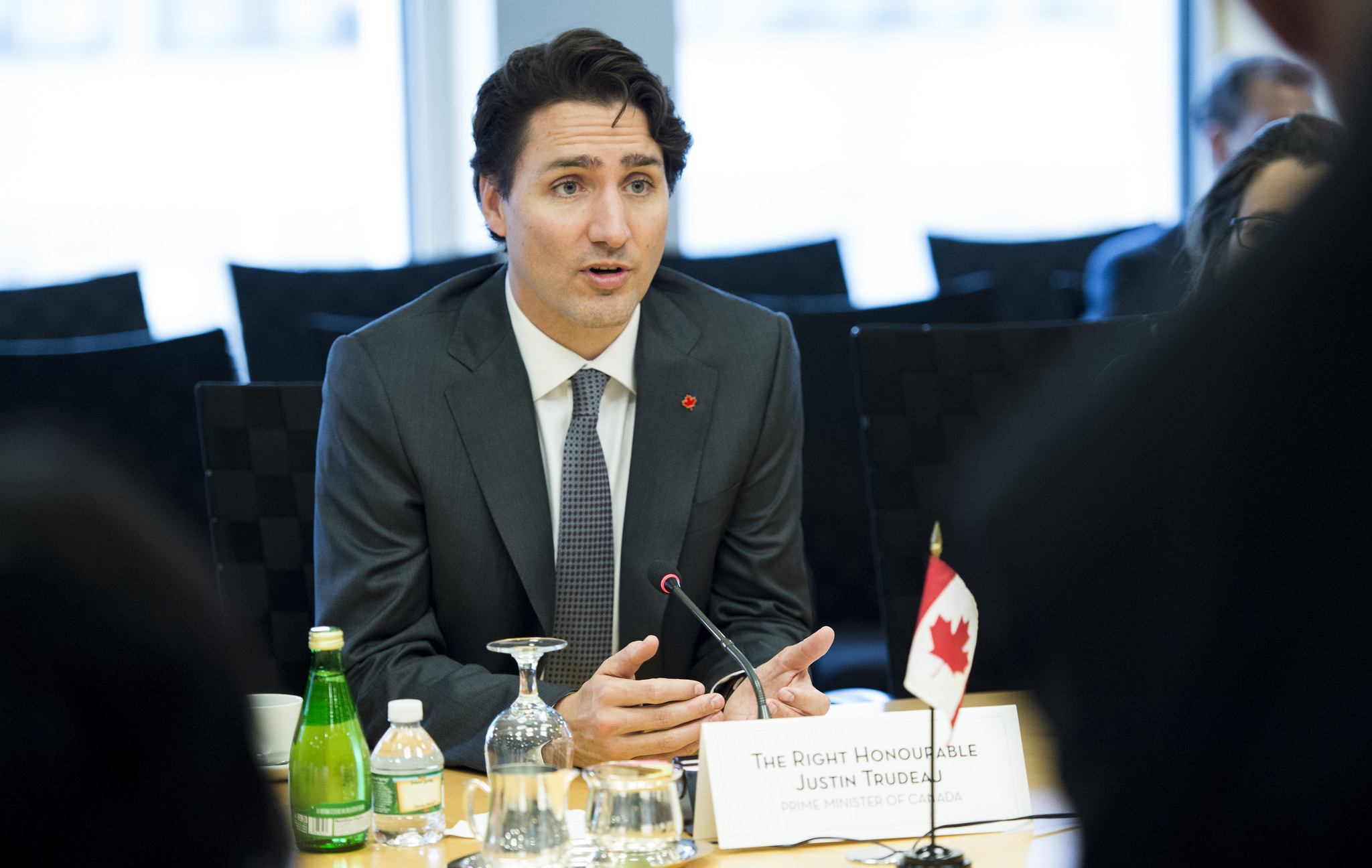Karl Nerenberg is your reporter on the Hill. Please consider supporting his work with a monthly donation Support Karl on Patreon today for as little as $1 per month!
The prime minister keeps making the bizarre argument that a partly proportional electoral system would allow anti-immigration Conservative Kellie Leitch to form her own party and get seats in parliament –perhaps even hold the balance of power.
He did it again on Thursday in Iqaluit.
It is true that in Israel, and some other countries with pure and total proportional systems, extremist parties have, indeed, gained a foothold in parliament, and, at times, a role in governing coalitions.
Nobody, however, proposes pure proportional for Canada.
One of the options that was on the table until Justin Trudeau pulled the plug is mixed-member proportional, the system they use in Germany.
In the German case, half of the members are elected the way we Canadians elect representatives: by first-past-the-post. The others are elected proportionally, by party, on a regional basis. To get any proportional seats, however, parties must win at least five per cent of the vote. That proviso has kept out extremists, and Germany has had stable, consensual coalitions for about 70 years.
The Canadian first-past-the-post system, on the other hand, allowed Stephen Harper, who gave Kellie Leitch her start in politics, to win not just a handful of seats, but a majority.
In many respects, Harper was an extremist.
His government denied climate change. It fomented antipathy and distrust toward refugees. It denied free speech to scientific researchers. It attempted to rig the voting process in order to deny the vote to many poor, young and Indigenous people. It bundled huge amounts of disparate legislation into monstrous omnibus budget implementation bills and rammed them through parliament with no chance for thorough debate. It forced draconian criminal justice measures on the provinces against the advice of most professionals and experts. The list is long.
Only under first-past-the-post could a party as extreme as the Harper Conservative party win a majority of seats in Canada with less than 40 per cent of the popular vote.
And so, in killing the reform process Trudeau has, in fact, opted for a high-risk course of action.
There are lots of political imponderables that could happen between now and the next election in 2019.
Today, a Leitch or Kevin O’Leary-led Conservative party majority victory might not seem to be the most probable outcome of the next election, but it is not at all beyond the realm of the possible.
Any other system than first-past-the-post would make it much more difficult for a party on the far right flank of the political spectrum to gain 100 per cent of the power with as little as 37 per cent of the votes.
Notwithstanding the facts, Trudeau tries to argue that it is prudent and reasonable to maintain the current, inherently destabilizing system, while his government — which apparently has only limited energy and resources and a pathologically short attention span — focuses on notionally “more pressing” matters.
The prime minister is, of course, right to point out that there are hazards in the reform process. The greatest hazard is, however, doing nothing at all.
Karl Nerenberg is your reporter on the Hill. Please consider supporting his work with a monthly donation Support Karl on Patreon today for as little as $1 per month!
Image: Flickr/World Bank Photo Collection



